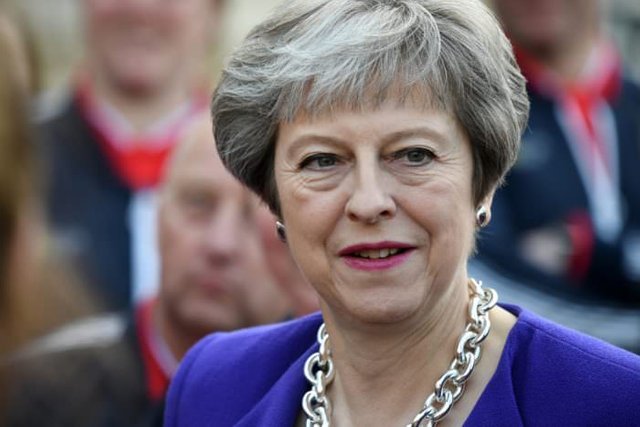Crypto regulation – by how much will it hit valuations?
Will new cryptoasset regulations act as a deep-cleanse digital detergent, rinsing away flakier offerings and re-positioning credible ones with extra valuation sheen and bounce? And if so, which ones will win out?
Daniel Cookson, a director at investment company All Blue Capital and an ex Clifford Chance lawyer, says regulation discussion requires some caution and a huge amount of nuance.
“If you take into consideration the swathes of ICOs and altcoins that, for all intents and purposes, are akin to company shares, then applying securities regulation and transparency rules isn’t altogether a bad thing.”
“But if we take into consideration bitcoin, then regulation has no place other than as it applies to the intermediaries which orbit it, such as exchanges, brokers and investment adviser.”
Bitcoin is sound and has the most decentralized network with the most nodes. This clout makes it “the safest and most government-resistant crypto,” says Cookson though there’s a gamut of other aspirants out there.

An ultra hot wash for some cryptos and a long rinse? A crypto clean-up is much needed argue many
Not the only game in town
Crypto regulation assumes rather a great deal. When nearly every financial regulator disagrees on how oversight looks, feels and functions, how do you begin to make progress? The technology does not need an intermediary nor is it dependent on a fee-chasing broker or middleman. Central authorities or banks have no meaningful role in operations or ownership governance.
Some establishment players, including the Financial Stability Board, chaired by Bank of England governor Mark Carney, still aver that crypto assets pose little threat to the global money supply.
“Even at their recent peak, their combined global market value was less than 1% of global GDP,” Carney said. But Carney acknowledged in the same speech, The Future of Money, 2 March 2018, that some form of regulations were en route. “The time has come to hold the crypto-asset ecosystem to the same standards as the rest of the financial system,” Carney said.
It’s somewhat slow off the mark: the Canadian government has already produced a crypto white paper acknowledging a co-existent digital currency future with the Canadian dollar says Gavin Pannu, a market analyst and trading mentor at the London Academy of Trading (LAT), told Open Ledger.
“Venezeula,” he expands, “has been one of the first nations to accept cryptocurrencies with the Pedro, which is backed by their oil and gold reserves.”

Venezuela has many problems but legitimising the use of cryptocurrencies is not one of them
Codes & Conduct
However, the Bank of England has been bench-testing Ripple’s headline feature – instant cross border payment process. Cash despatched into the Ripple network is converted into the XRP token at one end before reverting to your currency of choice at the other.
This is claimed to be finessed super cheaply compared to the current cost of cross-border transactions, opening the door to a new generation of currency business services unburdened by legacy system costs.
“It’s clear,” Pannu goes on, “that central banks are beginning to recognise the potential of cryptocurrencies. It is only a matter of time before they are involved in providing a structure for cryptocurrencies, but only once regulators have fully understood the risks involved and measures to mitigate it.”
Or, more cynically, have a better fist of controlling it. As far as the UK goes, profits and losses are taxed like any other ordinary income, for the moment, though, PM Theresa May warned at the start of 2018 that the government was looking closely at the issue.

British PM Theresa May wants parliament to get a grip on cryptos though May’s influence is under pressure on many other issues currently
Several crypto companies have formed a trade association, CryptoUK, whose founding members – Coinbase, Coinfloor, eToro and law firm Simmons & Simmons – have signed up to a code of conduct to encourage better cross-industry protection standards.
They want regulators to buckle down on brokers, trading platforms and exchanges rather than the cryptocurrencies themselves. They also want the UK Treasury to issue the Financial Conduct Authority (FCA) with new powers on crypto investment.
Jurisdiction fall-out
But joined-up global action is what’s really needed argues Robert Pyke, CEO of Aziza project, an asset-backed crypto run on the ERC20 (Ethereum) standard. It aims to fund $60m for a gas-to-solar project in Namibia, raising value for investors and ultimately bringing electricity to millions in Sub-Saharan Africa, Pyke hopes.
“If one jurisdiction,” Pyke told OpenLedger, “attempts to put in restrictions no matter how well thought out and intentioned the likely reaction of organisations would be to run their project from somewhere else.”
He goes on: “Global crypto hubs need to come together and put in place some sort of global ‘light touch’ regulation to permit organisations to run an ICO – to demonstrate they have a legal entity and who the controlling minds are, i.e. who is liable if it is a fraud”.

Global crypto hubs must self-regulate better if they are to avoid an inter-governmental backlash
Keep it simple for mass pick-up
The regulation pace may change as funding streams adapt. Thomas Bertani, CEO of Eidoo, a hybrid exchange, says the sum total of ICO capital raised in 2017 matched the same amount of European VC funding in the same year.
“What we can say for sure is that the ICO fund-raising model is becoming more regulated. You have real companies raising real funds. Should the final users [of the technology] be accountable for regulation just because there are no intermediaries? In many cases that’s not viable.”
Bertani emphasises that blockchain value lies in basic comprehension – the more complex blockchain is, the less likely it is to be understood.
“Bitcoin has been around since 2009. This brings with it a huge amount of value. It is less subject to cryptographic or mathematical assumptions, such as Zcash. Bitcoin uses simple components. That’s why I’m confident in its store of value. You don’t want complexity in terms of value, you want a lot of certainty.”
Jay Gomez from Triay & Triay, Globalaw agrees, more or less. “The ability of a particular crypto to survive relies on mass adoption. My personal view is that massive adoption won’t arrive until we have reduced volatility. It’s almost like a chicken-and-egg situation.”

Institutional cash can handle the unpredictable – but what about ordinary consumers?
Institutional money isn’t bothered by volatility. They know how to play it (the more the better). But retail cash is very different. “The easiest way for the average person to understand the tech is to have a fiat-linked crypto which is perhaps regulated to a level the consumer would feel comfortable with.” Such as Tether.
But for mass adoption, volatility is a really, really bad thing, Gomez says. “They’d [consumers] face constant FX risk. Park that to one side. For the average consumer it’s how do I hold my bitcoin, how do I operate my ether wallet, what exchange do I go onto and is that exchange legit? Am I sending my credit card details into a black hole? It’s really difficult for them to see the bigger picture and who’s telling the truth.”
Text by: Adrian Holliday
Originally published: https://dex.openledger.io/crypto-regulation-by-how-much-will-it-hit-valuations/
Follow OpenLedger on socials
Is Danemark a crypto friendly country ?